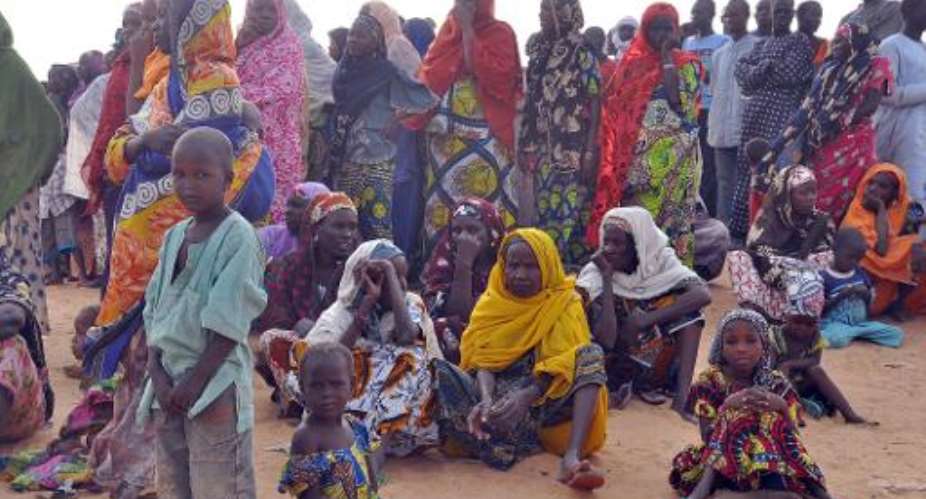Maiduguri (Nigeria) (AFP) - The risk of disease is rising in camps for people displaced by Boko Haram violence because of deteriorating sanitary conditions, relief workers in northeast Nigeria said Thursday.
Abba Yerima, who runs a camp in the Borno state capital of Maiduguri, said more than 6,500 people were currently living at a facility meant for 2,000.
"The toilets are very few... forcing people to defecate in the open air," he said at a meeting with the national emergency agency, which called for urgent action to prevent a potentially deadly disease outbreak.
"We are still appealing to (the) government to build more toilets in the camp to save the situation," Yerima added, referring to the prospect of an outbreak, possibly including cholera.
The Boko Haram conflict has forced 1.5 million people from their homes, with hundreds of thousands seeking refuge in a series of camps set up across the northeast.
The military has reportedly liberated scores of towns from rebel control and indicated people could begin returning home.
But local leaders insist the security situation across the region remains precarious, cautioning people to wait before trying to resettle.
Overpopulation in some camps is therefore likely to continue for several months at least.
The regional head of the National Emergency Management Agency (NEMA), Mohammed Kanar, said the agency will increase supplies of "soaps, toiletries, disinfectants and other necessities to prevent disease outbreak".
The huge influx of displaced people in major northeastern cities has strained resources across the region.
While some are living in camps, other displaced people are staying with relatives, putting pressure on family budgets in the deeply impoverished region.





 There’s nothing you can do for us; just give us electricity to save our collapsi...
There’s nothing you can do for us; just give us electricity to save our collapsi...
 Ghanaian media failing in watchdog duties — Sulemana Braimah
Ghanaian media failing in watchdog duties — Sulemana Braimah
 On any scale, Mahama can't match Bawumia — NPP Youth Organiser
On any scale, Mahama can't match Bawumia — NPP Youth Organiser
 Never tag me as an NPP pastor; I'm 'pained' the 'Akyem Mafia' are still in charg...
Never tag me as an NPP pastor; I'm 'pained' the 'Akyem Mafia' are still in charg...
 Your refusal to dedicate a project to Atta Mills means you never loved him — Kok...
Your refusal to dedicate a project to Atta Mills means you never loved him — Kok...
 2024 elections: I'm competent, not just a dreamer; vote for me — Alan
2024 elections: I'm competent, not just a dreamer; vote for me — Alan
 2024 elections: Forget NPP, NDC; I've the Holy Spirit backing me and nothing wil...
2024 elections: Forget NPP, NDC; I've the Holy Spirit backing me and nothing wil...
 2024 elections: We've no trust in judiciary; we'll ensure ballots are well secur...
2024 elections: We've no trust in judiciary; we'll ensure ballots are well secur...
 Performance tracker: Fire MCEs, DCEs who document Mahama's projects; they're not...
Performance tracker: Fire MCEs, DCEs who document Mahama's projects; they're not...
 Train crash: Railway ministry shares footage of incident
Train crash: Railway ministry shares footage of incident
